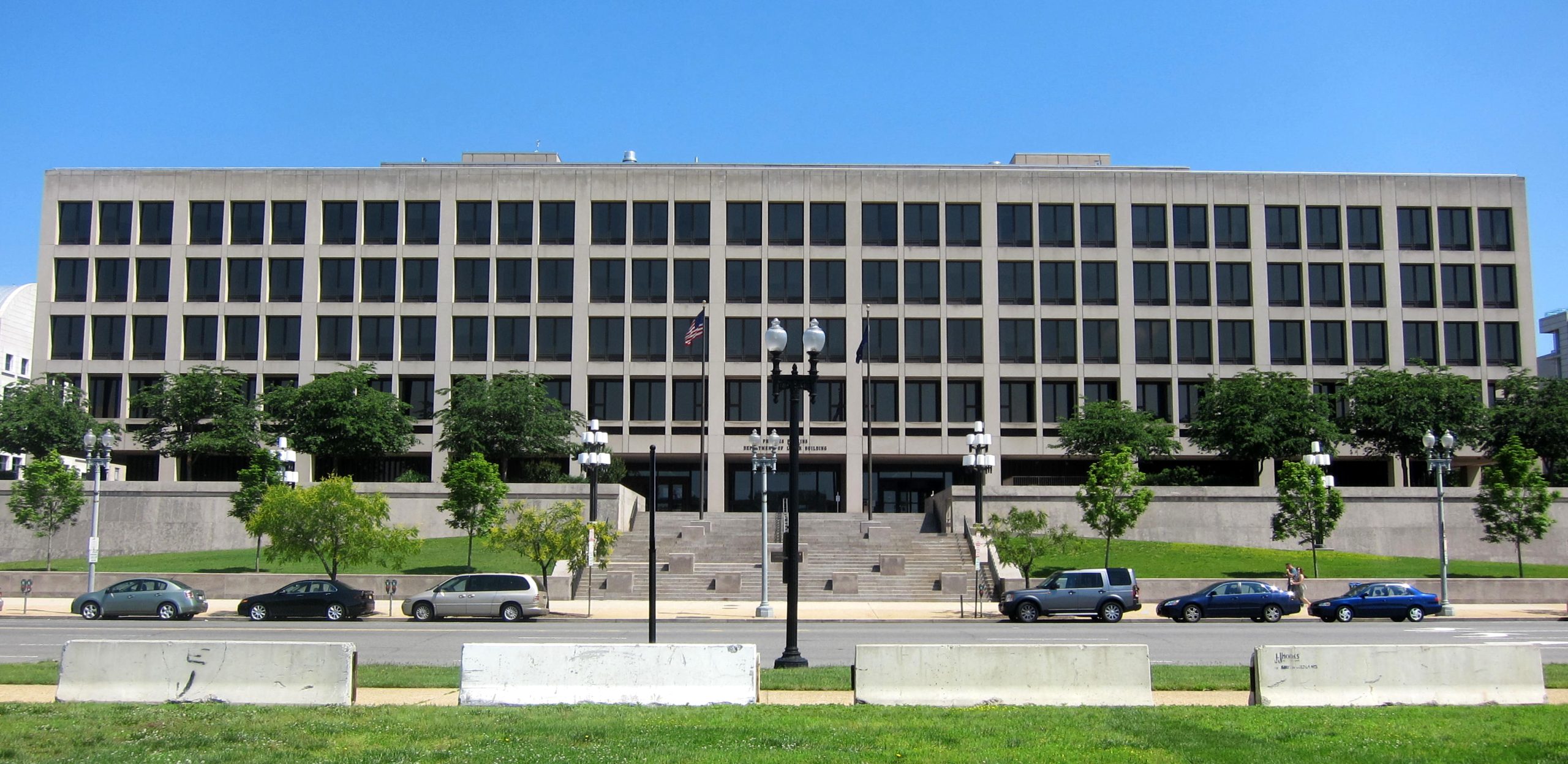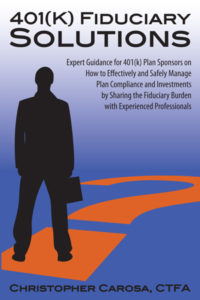The Impact Of New Fiduciary Rule On 401k Plan Sponsors

Last week on April 25th, the DOL released its new Fiduciary Rule (see https://www.federalregister.gov/public-inspection/2024-08065/retirement-security-definition-of-an-investment-advice-fiduciary). As with earlier attempts to update the definition of fiduciary, 401k plan sponsor should pay attention.
“These new rules update regulations created nearly a half-century ago that simply are not providing the protections America’s workers need and deserve for their retirement savings so that they can retire with dignity,” said Assistant Secretary for Employee Benefits Security Lisa M. Gomez in an official press release. “The investment landscape has changed, the retirement landscape has changed, and it is critical that our regulations are responsive to those changes so that workers can reach the secure retirement that they work for decades to finally achieve.”
Why is it important for 401k plan sponsors to look closely at this new rule? For one thing, it replaces and updates a definition from 1975, well before the advent of the 401k plan. This new rule addresses concerns not contemplated fifty years ago.
“The DOL’s final rule seeks to better protect retirement investors and their retirement security, and protect them against conflicts of interest, by more specifically defining when a person is an investment advice fiduciary under ERISA,” says Michelle Capezza, of counsel at Mintz, Levin, Cohn, Ferris, Glovsky and Popeo, P.C. in New York City. “The goal is to meet reasonable retirement investor expectations that they are receiving prudent advice upon which they can rely from these investment advice fiduciaries, and that they can place their trust and confidence in the adviser as acting in their best interest. This rule applies in the defined contexts when advice and/or recommendations are provided to such retirement investors with respect to an employee benefit plan, and a plan as defined in the Internal Revenue Code such as an individual retirement account. Even advisors that provide one-time advice about retirement account rollovers to IRAs or annuity purchases can be ERISA fiduciaries if they meet the new defined terms of an investment advice fiduciary. The new guidance also amends the compliance requirements for certain prohibited transaction exemptions, such as impartial conduct and conflict mitigation processes, which allow such advisers to be compensated for their advice.”
While the direct impact on 401k plan sponsors may be negligible, the new Fiduciary Rule will affect the vendors hired by plan sponsors. It will be up to the plan sponsors to vet those vendors in light of the new Rule.
“Plan sponsors will have to make sure that service providers to the plan, such as recordkeepers, who have access to their employees and retirees, do not abuse their positions by selling products without working for the best interest of the participants in the plan,” says Jerry Schlichter, founding and managing partner of Schlichter Bogard in St. Louis, Missouri.
Seeing no direct impact, some plan sponsors might merely raise their consciousness to the issues attended to in the regulation.
“I don’t know that the new rule will impact plan sponsor responsibilities,” says Jason Grantz, managing director at Integrated Pension Services in Highland Park, New Jersey. “They are still a fiduciary to the plan; they still have the duty to prudently hire and monitor all their service providers and still have the ongoing duty to ensure that the plan services are necessary, and the fees are reasonable. The rule may cause greater awareness, but this rule is only the latest ‘new’ fiduciary rule, so this is not new ground for many employers.”
It’s true that the new Rule will require different reactions based on the facts and circumstances of each specific retirement plan sponsor.
“Some won’t be affected. Some service providers already confirm, in writing, that they are ERISA fiduciaries,” says Jack Towarnicky, of counsel at Koehler Fitzgerald, LLC, in Powell, Ohio. “While the final rule confirms that investment education does not trigger ERISA fiduciary status, sometimes it is difficult to draw the line where education leaks into advice. So, plan sponsors should review/re-examine/re-evaluate service provider actions/materials in delivering investment education, and, given the Retirement Security Rule’s focus on rollovers, any service provider actions/materials regarding distributions.”
The point is, while on the surface, things may remain the same, what goes on underneath may need a little tweaking at the very least.
“Plan sponsors can continue to offer plan investment information or education without an investment recommendation, and that will not be considered advice under the new rule,” says Capezza. “Plan sponsors should evaluate their plan investment advice offerings including robo advice services, plan rollover services, and any other investment advisor relationship that can come under this rule and determine any desired changes to be made to those services and contractual agreements.”
Sometimes, and depending on the vendors used, that tweaking may be more than just a little.
“The rule will significantly change the way plan sponsors operate their retirement plans, particularly in how they manage their relationships with service providers,” says Brandy Burch, CEO and founder of Benefitbay in Kansas City, Missouri. “First and foremost, plan sponsors will need to more diligently assess and monitor their service providers to ensure they are complying with fiduciary standards. This means sponsors may need to revise their contracts and oversight processes to hold advisors and other service providers accountable for acting in the best interests of plan participants.
Plan sponsors will need to inspect how they document and verify anything that regulators might determine to be a self-dealing transaction.
“A new due diligence question for plan sponsors should be to ask their plan advisor what steps they are taking to comply with the new Fiduciary Rule and the Prohibited Transactions Exemption,” says Jeff Coons, chief risk officer at High Probability Advisors in Pittsford, New York. “This should not be a hard question for the advisor to answer once the Rule takes effect.”
In recent years, there’s been a greater push to place annuities in 401k plans. The new Rule will bring the process for doing so under more scrutiny.
“So if you are in HR at your company, you won’t be impacted, as you aren’t providing advice,” says Derek Jacques, attorney & principal owner at The Mitten Law Firm in Southgate, Michigan. “However, Life Insurance Agents will need to be apprised of the rule change. If you are providing advice, you need to declare your fiduciary status and abide by the specific rules outlined.”
“Independent producers representing annuity carriers will now have many new rules and considerations to abide by when making recommendations involving consumers’ retirements funds,” says Ryan D. Brown, partner and attorney at financial planning firm CR Myers & Associates headquartered in Southfield, Michigan.
Of course, in general, documentation and disclosure procedures will need updating.
“No doubt there will be an extra layer of acknowledgement for plan sponsors to comply with regulators,” says Stephen Herbert Akin, founder of Akin Investments in Charleston, South Carolina. “Ultimately they need to go beyond Best Interest rule to fully disclose in plain language conflicts.”
The issue gets more complex for rollovers.
“The definition of an investment advice fiduciary usually applies to the plan service providers like investment managers, recordkeepers, and financial advisors but not to plan sponsors,” says Luan Dollens, chief compliance officer for Aldrich Wealth LP in Lake Oswego, Oregon. “If sponsors are concerned about their service providers meeting the requirements of the rule, they should ask them to disclose if they provide rollover recommendations or investment advice to their participants. Some recordkeepers have been actively trying to cross-sell services to participants and maintain rollover dollars. The plan sponsor can control or limit these types of activities within their agreements with their service providers.”
“… A VITAL REFERENCE TOOL FOR YEARS TO COME.”
401(K) FIDUCIARY SOLUTIONS ADDRESSES THE FIVE KEY AREAS OF FIDUCIARY LIABILITY FACING 401K PLAN SPONSORS ON A DAILY BASIS. IN ADDITION, 401(K) FIDUCIARY SOLUTIONS FEATURES SEVERAL CHECKLISTS 401K PLAN SPONSORS CAN USE TO HELP ENSURE THEIR PLAN IS THE BEST IT CAN BE.
WOULD YOU LIKE TO DISCOVER THE COLLECTED WISDOM OF DOZENS OF INDUSTRY EXPERTS AND THOUGHT LEADERS? CLICK HERE AND BUY YOUR COPY OF 401(K) FIDUCIARY SOLUTIONS TODAY!
Here’s where the greatest controversy of the new Rule, as with its predecessors, comes to a head.
“I remain concerned about the intersection of this new rule with involuntary distributions where the safe harbor requires IRAs to allocate 100% to capital preservation,” says Towarnicky,. “The preamble to the final Retirement Security Rule confirmed the proposed rule would have required investment recommendations be based on the ‘…particular needs or individual circumstances of the relevant investor and may be relied upon by the retirement investor as a basis for investment decisions that are in the retirement investor’s best interest …’ That language was dropped. The preamble to the final rule now confirms that: ‘… the final rule will result in the application of fiduciary status under circumstances in which both parties should reasonably understand that the retirement investor would rely on the recommendation for investment decisions…’ A 2020 Employee Benefits Research Institute study of their IRA database showed that 22.7% of Traditional Rollover IRAs had balances of less than $5,000, and 27.2% of these accounts were at least seven years old, where a substantial portion were 100% allocated to capital preservation. Not clear to me when fiduciary status ends after a one-time voluntary or involuntary rollover. So, plan sponsors may want to consider limiting involuntary distributions to those less than $1,000, while adopting an ‘asset retention’ strategy, and adjusting participant paid fees for term vested and retired participants to cover any added expense.”
In a nutshell, as with most new regulations, the result remains the same, only with more paperwork.
“The increased fiduciary obligations under the rule will require plan sponsors to enhance their monitoring and compliance mechanisms,” says Richard Bavetz, investment advisor at Carington Financial in Westlake Village, California. “This includes more frequent and detailed reviews of the advice given by fiduciaries, the investment options offered in the plan, and the performance of those investments to ensure they continue to meet the best interest standards. By addressing these areas, plan sponsors can align their operations with the new fiduciary standards, enhancing the protection and retirement security of their participants. These changes will likely require significant effort in terms of training, contract renegotiation, compliance monitoring, and most certainly cost. It will remain to be seen whether the effort and extra cost is really worth it.”
Then again, the more things change, the more they stay the same.
“Plan sponsors should have always been worried about the type of advice their participants were receiving when those advisors were not accepting fiduciary responsibility for their advice,” says Coons. “Once these regulations take effect, plan sponsors may be able to feel a little more comfortable about the nature of the advice being delivered to their participants.”
But, how does the new Rule impact service providers?
Next Week: Does the new Fiduciary Rule really level the playing field.
What do you think? Join us every Wednesday at noon (Eastern Time) for our Thought Leader Roundtable discussion. Not sure if you’re on the email invite list? Click here to be added to the list.
Christopher Carosa is an award-winning online news producer and journalist. A dynamic speaker, he’s the author of 401(k) Fiduciary Solutions, Hey! What’s My Number? How to Improve the Odds You Will Retire in Comfort, From Cradle to Retirement: The Child IRA, and several other books on innovative retirement solutions, practical business tips, and the history of the wonderful Western New York region. Follow him on Twitter, Facebook, and LinkedIn.
Mr. Carosa is available for keynote speaking engagements, especially in venues located in the Northeast, Mid-Atlantic, and Midwestern regions of the United States and in the Toronto region of Canada.




































































